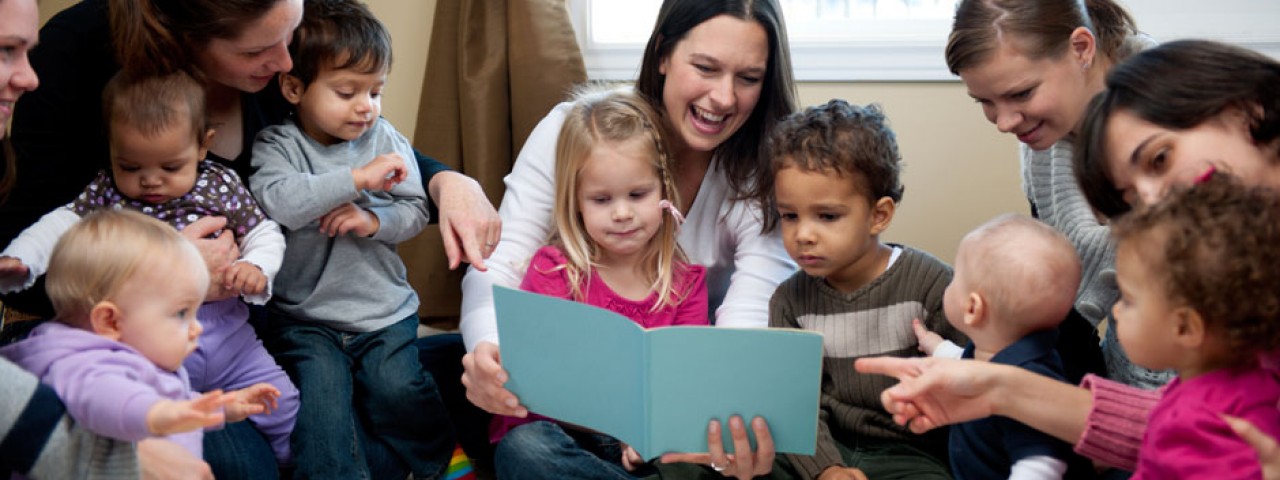Effective Coparenting Leads to Positive Outcomes for Children
- Tweet

Coparenting refers to how parents work together in their roles as caregivers. Effective coparenting requires cooperation, supportiveness, and mutual involvement. Coparenting leads to increased warmth in their relationships with their children.
When mothers and fathers support and encourage each other, they are more likely to engage in the sensitive parenting necessary for their children’s optimal brain development.1,2
Parents with low-conflict relationships are more likely than high-conflict parents to function as a team. They spend more time interacting with their children together, creating opportunities to learn from each other’s parenting styles. Mutually supportive parenting, in turn, promotes children’s behavioral and emotional adjustment, even in the first three years of life. By contrast, young children of high-conflict parents are at higher risk for anxiety, aggressive behavior, and poor social skills.3,4
A strong marriage leads to warm and sensitive parenting.
Much of the research on how the bonds between parents affect children’s development focuses on families headed by married couples. Children are affected by the quality of their parents’ relationship even in the first three years of life. Mothers and fathers in healthy and satisfying marriages are more engaged in their role as parents and have more positive attitudes toward their children. Frequent and intense conflict, on the other hand, is associated with unresponsive and insensitive parenting.5,6
Researchers call this the spillover effect. Positive feelings between a mother and father can spill over into each parent’s relationship with the child. But so can negative interactions: parent-child conflict is more likely when there has been a recent marital conflict.1,7
A harmonious marriage is particularly important for positive fathering. Father involvement is affected by marital quality, especially during infancy and early childhood.1 Fathers can have positive effects on children’s cognitive and language development in the first three years, above and beyond the influence of mothers.6,8
Parental conflict affects children directly and indirectly.
Conflict is a normal part of intimate relationships. Disagreements and arguments that are handled constructively pose few risks for children. When conflict is frequent, intense, or hostile, however, children can be negatively affected. Repeated exposure to such conflicts can be a source of chronic stress. Infants may begin to see their parents as frightening, and older children are likely to learn poor behavioral and social skills.3
Conflict can also affect children indirectly. Persistent strife between a mother and father drains both parents’ emotional resources and diverts their attention from their child’s needs. In time, it can reduce both the quantity and the quality of parent-child interactions.3,5
References:- Barnett MA, et al. Interdependence of parenting of mothers and fathers of infants. Journal of Family Psychology. 2008; 22(3): 561–573.
- Bonds DED, Gondoli DM. Examining the process by which marital adjustment affects maternal warmth: the role of coparenting support as a mediator. Journal of Family Psychology. 2007; 21(2): 288–296.
- Fincham FD, Hall JH. Parenting and the marital relationship. In T. Luster & L. Okagaki (Eds.), Parenting: An ecological perspective. Hillsdale, NJ: Erlbaum. 2005; 205-234.
- Jenkins JM. Marital conflict and children's emotions: the development of an anger organization. Journal of Marriage and Family. 2000; 62(3): 723-736.
- Buehler C, Gerard JM. Marital conflict, ineffective parenting, and children's and adolescents' maladjustment. Journal of Marriage and Family. 2002; 64(1): 78-92.
- Pancsofar N, Vernon-Feagans L, Odom E, et al. Family relationships during infancy and later mother and father vocabulary use with young children. Early Childhood Research Quarterly. 2008; 23: 493–503.
- Almeida DM, Wethington E, Chandler AL. Daily transmission of tensions between marital dyads and parent-child dyads. Journal of Marriage and Family. 1999; 61(1): 49-61.
- Cabrera NJ, Shannon JD, Tamis-LeMonda C. Fathers' influence on their children's cognitive and emotional development: from toddlers to pre-K. Applied Developmental Science. 2007; 11(4): 208-213.
